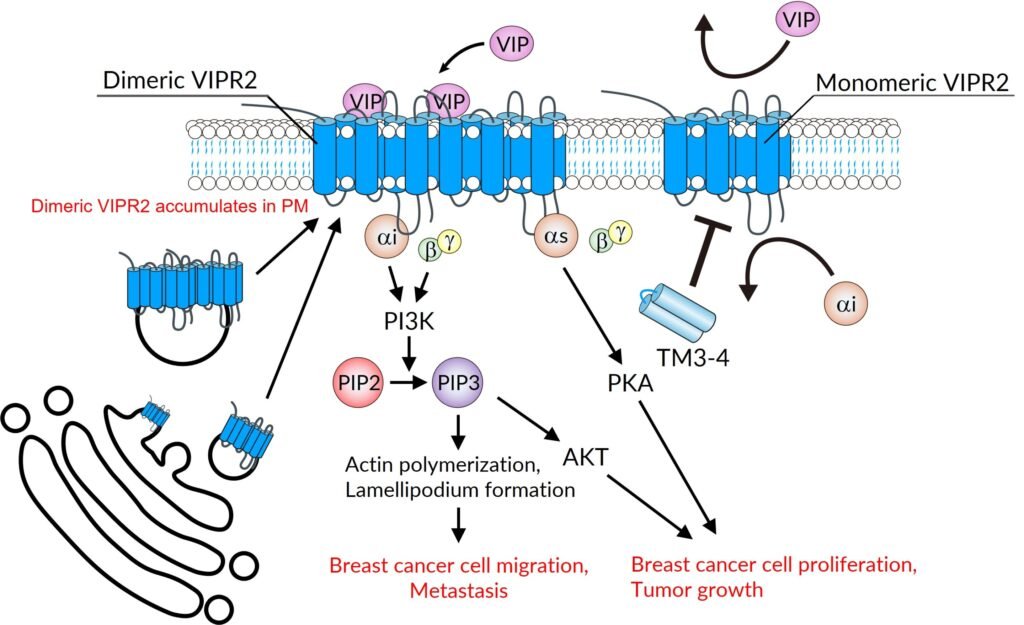Breast cancer is a challenging disease to treat, especially when cancer cells have spread beyond the primary tumor site. Hiroshima University researchers have made a breakthrough in understanding the molecular mechanisms behind the proliferation and migration of breast cancer cells. Their findings could potentially lead to the development of a novel anticancer drug targeting vasoactive intestinal peptide receptor-2 (VIPR2), a receptor molecule that plays a role in breast cancer progression.
VIPR2 is known to be overexpressed in breast cancer, contributing to increased tumor growth and metastasis. The researchers discovered that VIPR2 can form dimers—molecules composed of two receptor units binding together. These dimeric VIPR2 molecules were found to enhance breast tumor growth and metastasis through specific binding sites within the receptor.
By studying cell and mouse models, the researchers identified a chain of amino acids called TM3-4 peptides that disrupt the interaction between VIPR2 molecules, leading to the de-dimerization of the receptor. This de-dimerization process resulted in reduced tumor growth and metastasis in breast cancer cells expressing the TM3-4 peptides.
The researchers plan to further investigate the potential anticancer effects of purified TM3-4 peptides in animal models. Their goal is to develop new drugs that target cancer cells with enhanced VIPR2 dimerization, offering a promising approach to combat breast cancer progression.
This groundbreaking research was published in the British Journal of Pharmacology, highlighting the importance of understanding the role of VIPR2 in breast cancer development. The findings provide valuable insights into potential therapeutic strategies for treating this challenging disease.
For more information on this study, you can refer to the publication by Satoshi Asano et al. in the British Journal of Pharmacology. This research was conducted by the dedicated team at Hiroshima University, showcasing their commitment to advancing cancer research and developing innovative treatments for breast cancer.
Overall, this study sheds light on a new target for anticancer therapy and underscores the importance of exploring novel treatment approaches for breast cancer. The potential use of TM3-4 peptides as a therapeutic agent holds promise for improving outcomes for patients with breast cancer, offering hope for a future where more effective treatments are available to combat this complex disease.


